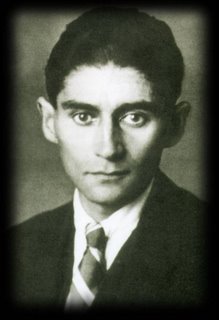On Sara's request:
(No debate, please)...
While reading one of Dr. Iqbal’s letters about one of his teachers, the neo-Hegelian, McTaggart, I hit upon something interesting, which only fell into context with the present topic after some deep thinking. After all the spirituality, there were two or three places where Iqbal did not sound like the Iqbal we had been taught about in our Pakistan Studies classes. He wrote, “McTaggart’s philosophy was not in his intellect but in his emotions.”
In a consuming state of mind, I could never imagine any philosopher rooting his reasoned doctrines in emotions, rather than intellect. To further this, he wrote in a succeeding passage that “the solution of all problems is found only in love… Love is no passivity. It is active and creative… it is the only force which circumvents death: for when death carries away one generation, love creates another.”
It is interesting how Hajwairi defines love. He points out several etymologies of “Muhabbat”, but an intriguing one follows thus, “derived from hibbat: seeds falling into the earth of the desert”.
Now recall Iqbal’s line, “it is the only force which circumvents death: for when death carries away one generation, love creates another.” Yes, just like those seeds that turn the barren desert into greener lands…? (Think hard, you will put two and two together!)
As a student of psychology, I often see love as nothing but the squirting of a few chemicals at emotional instances. As a being vulnerable to this age’s media, I see love as something between your family and yourself, or the Hollywood-pomp. The rest is just charity. We don’t love the little boy we feed, that’s just charity. But then, of course, as a student of some human beings of Sense, and with blind informality, students of Hajwairi, Rumi, Bullay Shah and Ghazali, I know Love is only something you feel for God.
I may be wrong, but Love is not an emotion. The deeper I think into this, the more convinced I become that emotions are meant to fluctuate, they are literally defined in psychology as the “rising or falling of feeling”. If it falls, even temporarily, it cannot be Love. Another etymology Hajwari referred to is Muhabbat derived from hubb: “a jar full of stagnant waters”. If it is stagnant, it cannot be an emotion.
Ghazali very eloquently describes the role and nature of Qalb, the home ground of Love. The Qalb “catches the knowledge of God and the spiritual world”. Knowledge of God, right, but what is the role of Love here? Again, yet another one of Hajwairi’s interpretations, Muhabbat comes from the word habab: “bubbles of water and the effervescence thereof in a heavy rainfall.”
Meaning, the human body subsists through the spirit and the heart subsists through Love. Love is the current of the heart; heart is the receptive substance for the knowledge of God, and hence, Love is the energy for the knowledge of God? Or is it the energy of God?
What we call love, in our contemporary dictum, is the love of our own Nafs or Id (courtesy: personal experience). Because when God talks about Love, He says, "None will have the sweetness (delight) of Faith till he loves a person and loves him only for God's sake.” No Romeo dies for Juliet, no Juliet dies for Romeo; that is what the misinterpretation of arts and theatre taught us about love. Romeo dies for Romeo’s Nafs, Juliet dies for Juliet’s Nafs.
Maternal love, I believe, is still an epitome of God’s energy, since it is the yardstick God uses to show us how much He Loves us. And yet, every child born in this age can cite the story of Romeo and Juliet, none can cite the story of… well, just look at that! I can’t even think of an example of a mother who killed herself for her child, although we all know there must be a million such cases.
Between men and women, there can only be understanding, the rest is just the soliciting of the Nafs. There was understanding between the Prophet (Peace be upon his soul) and his first wife. Our Islamiat teachers get scandalized when we ask them, ‘Was it love at first sight?’; our Maulvi Sahibs frown when we ask them, ‘They were in love, right?’. That is probably because they are as confused about this phenomenon as we are, susceptible to same media that conditions you and myself.
God said that if you Love Him enough, you will become His Hands. Meaning, God’s energy will be translated through you to the rest of the creation. And so, our charity is not charity if there is no love in it. Without it, charity is just a mechanical process.
A smile is an act of charity, said the Prophet. Again, God’s energy translated through one who Loves God, to another person. This all connects back to what Iqbal said, Love is “the only force which circumvents death: for when death carries away one generation, love creates another.”
To conclude, Love is not an emotion, it is God’s energy, and the perpetual channel for our relationships with fellow beings.






